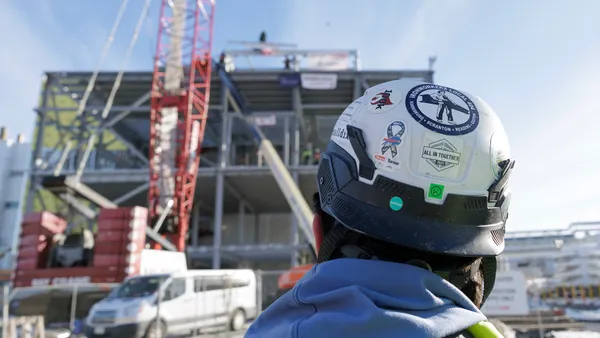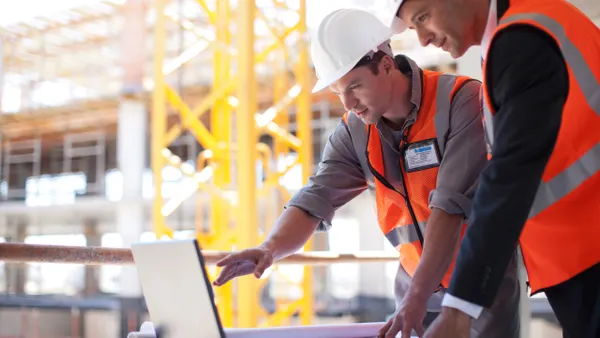Construction jobsites always are in constant flux with people, vehicles and materials frequently coming in and out. While project management platforms, modeling software and other tools organize certain workflows, few record all the moving parts and pieces of a typical project.
San Francisco-based startup indus.ai says its artificial intelligence analytics platform brings order to the chaos by creating a “digital twin,” or virtual representation, of jobsite activity throughout the project lifecycle. The company recently announced that it raised $3.7 million in seed financing in a round led by venture capital firm UP2398.
Indus.ai users mount five to 20 cameras throughout a jobsite on light posts, adjacent buildings, cranes or other structures that provide a vantage point of vehicles and workers moving throughout the site. Twenty-four-hour video footage from these cameras is fed to a custom neural network that was trained with more than a million construction images and videos, according to the company, to identify things like equipment type and utilization.
“We get to pretty minute details of what’s happening on the jobsite,” indus.ai CEO and co-founder Matt Man told Construction Dive, mentioning examples such as the number of workers onsite within a certain time frame, the time a flatbed delivery took place and the speed at which a task was completed.
It’s rare that a construction project goes perfectly according to budget and schedule, but indus.ai’s plug-and-play product may be able to shed light on inefficiencies sooner than later to prevent projects from being sidetracked. Stakeholders can reference daily reports on the dashboard and notice that work on the fourth floor of a project, for example, is taking longer than the previous three did, tracing it to small variances in the workflow that might have otherwise gone unnoticed.
“Our belief is that the earlier you get information on things not going per the plan, the more options you have,” Man said. “So as opposed to just putting more laborers in to finish the job with overtime pay, which is pretty difficult in this tight labor market, you have other options now like changing the design or ordering materials from different suppliers.”
Helping Skanska eliminate logistical challenges
Skanska USA deployed indus.ai’s tools about six months ago on a student housing project at University of California, San Francisco (UCSF). The owner was very interested in Skanska’s production controls, Julie Hyson, vice president and head of business strategy and customer experience for Skanska’s Northern California region, told Construction Dive. Skanska included indus.ai in its project proposal as a means to offer UCSF this desired visibility, she said.
Skanska plans to introduce the platform to additional project sites, in part, because it eliminates the logistical challenges of having to travel to a site to gauge project performance. “It allows visibility to analyze what’s happening on the site and look at production, but remotely,” Hyson said. Executives holed up in headquarters can virtually visit a site and applaud project teams with strong safety compliance, she said, or strike up a conversation with a team when compliance falls short.
Indus.ai also improves accountability, Hyson added, by ensuring workers that are scheduled to work overtime on a weekend show up, for example, and verifies that the number of truck deliveries Skanska is billed for is consistent with the video record. Plus, startups like indus.ai offer an agility that more seasoned tech companies lack, she said: “They’re nimble, they want our feedback,” and are “spending a tremendous amount of time on site and in the field.”
In general, the construction industry would benefit from “really paying attention to the technology that’s being developed for our industry and working to partner with those companies early on," Hyson said.













